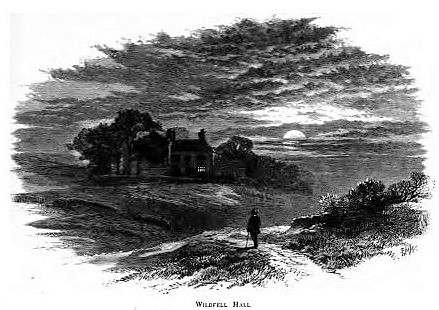 Brontë’s Wildfell Hall is a romantic potboiler. Helen Huntingdon, a good woman, married to an abusive man, Arthur Huntingdon, an abusive husband, runs away and takes the name, Helen Graham. At Wildfell Hall, Graham meets Gilbert Markham, who immediately falls in...
Brontë’s Wildfell Hall is a romantic potboiler. Helen Huntingdon, a good woman, married to an abusive man, Arthur Huntingdon, an abusive husband, runs away and takes the name, Helen Graham. At Wildfell Hall, Graham meets Gilbert Markham, who immediately falls in...
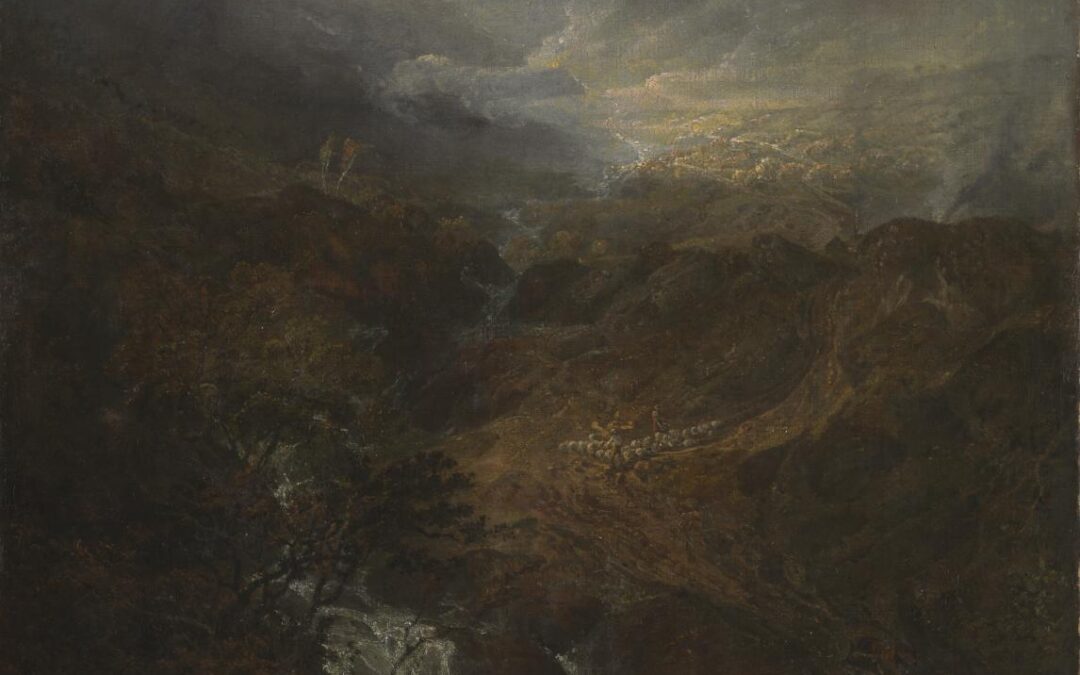 Sometime in 1798-1799, the date is unclear; Woodsworth describes a picnic in The Prelude. He does not refer to this adventure as a picnic because the word was unknown to him at this time. He probably became familiar with the word a decade later because John Wilson...
Sometime in 1798-1799, the date is unclear; Woodsworth describes a picnic in The Prelude. He does not refer to this adventure as a picnic because the word was unknown to him at this time. He probably became familiar with the word a decade later because John Wilson...
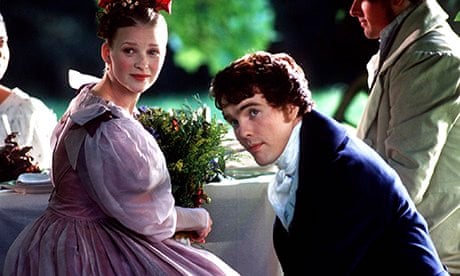 “Blissful” is Dickens’s word to describe Copperfield’s tenderest memories of Dora Spenlow’s picnic birthday party. He’s about nineteen and obsessed, getting up before 6 AM to buy flowers, so they are fresh. The picnic is near...
“Blissful” is Dickens’s word to describe Copperfield’s tenderest memories of Dora Spenlow’s picnic birthday party. He’s about nineteen and obsessed, getting up before 6 AM to buy flowers, so they are fresh. The picnic is near...
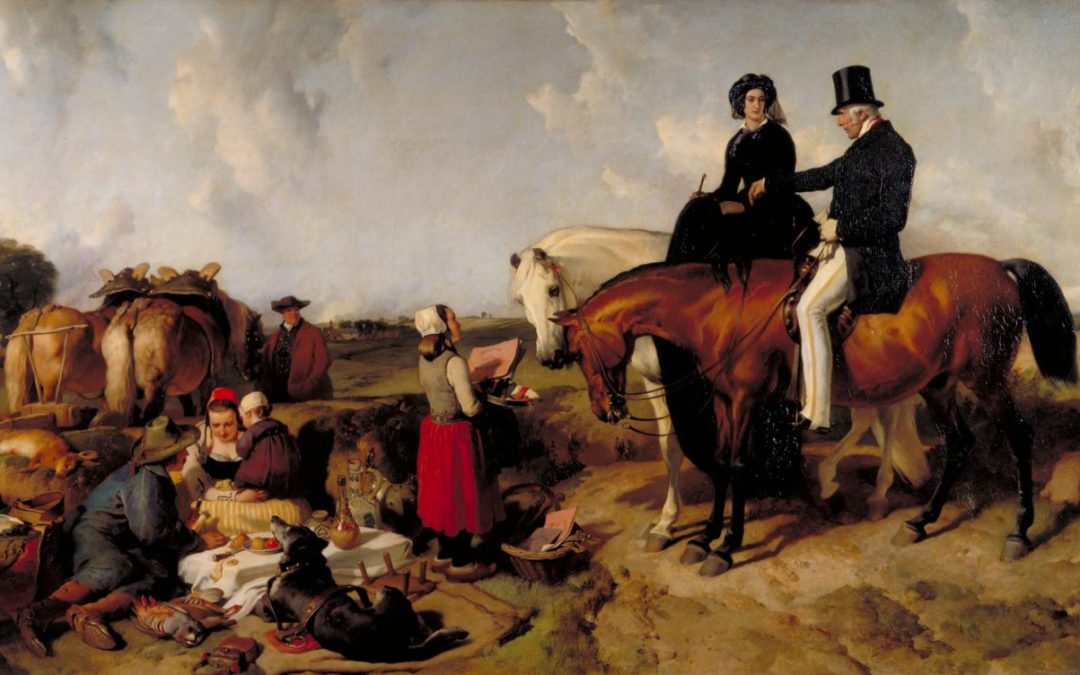 Landseer’s A Dialogue at Waterloo is a portrait of Arthur Wellesley, Duke of Wellington, and his daughter-in-law, Lady Douro, visiting the battlefield. As the Duke describes the scene as thirty-five years before, they are accosted by a young peasant girl selling...
Landseer’s A Dialogue at Waterloo is a portrait of Arthur Wellesley, Duke of Wellington, and his daughter-in-law, Lady Douro, visiting the battlefield. As the Duke describes the scene as thirty-five years before, they are accosted by a young peasant girl selling...
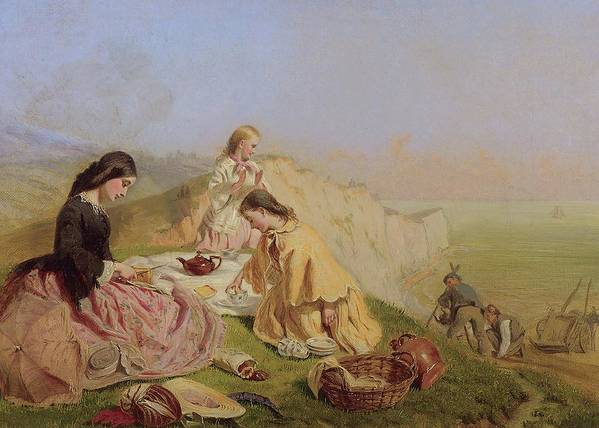 Three couples picnic on the edge of what looks like the cliffs in Dover. The women settle the picnic cloth while the men tend the campfire. Hicks flourished during the late 1850s through the end of the century, principally as a portrait and genre painter.
Three couples picnic on the edge of what looks like the cliffs in Dover. The women settle the picnic cloth while the men tend the campfire. Hicks flourished during the late 1850s through the end of the century, principally as a portrait and genre painter.
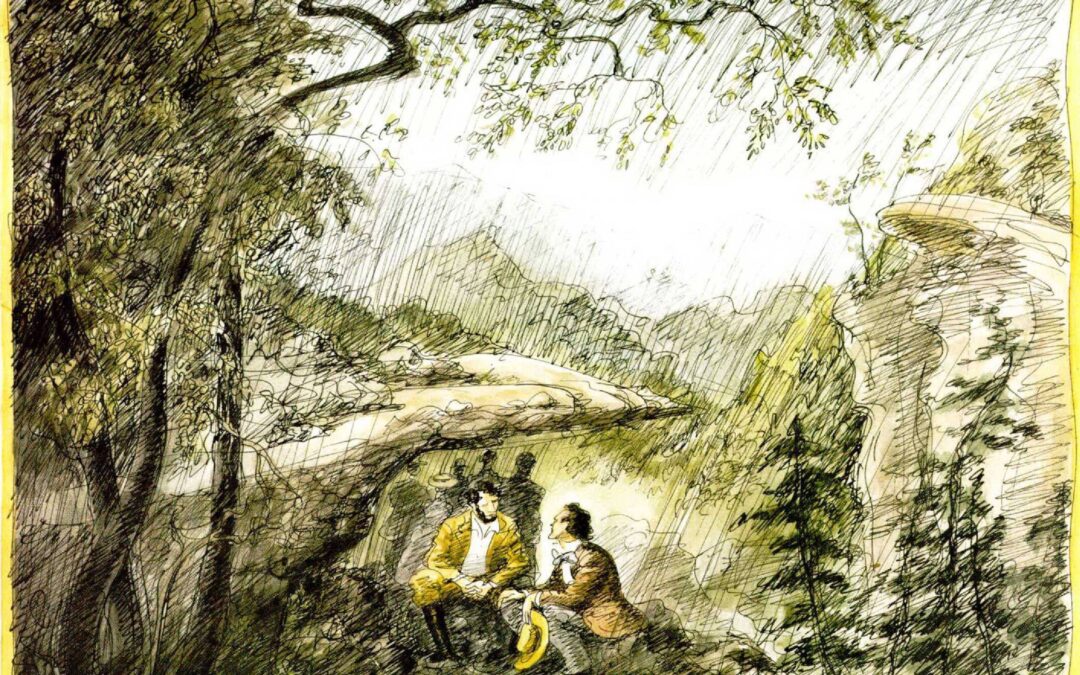 When Melville and Hathorne picnicked on Mount Mansfield in August 1852, Piper Heidsieck corks were popped. That’s what Cornelius Mathews wrote The Literary World during their climb to the summit. Until this meeting, the two authors were unacquainted though they...
When Melville and Hathorne picnicked on Mount Mansfield in August 1852, Piper Heidsieck corks were popped. That’s what Cornelius Mathews wrote The Literary World during their climb to the summit. Until this meeting, the two authors were unacquainted though they...
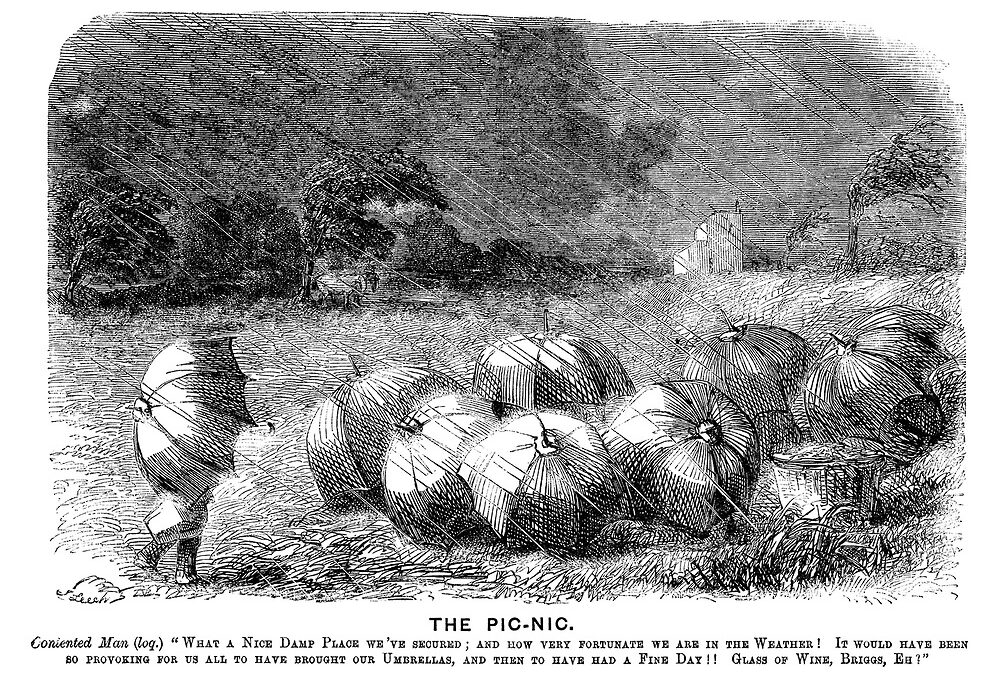 For whom a rainy day will not stop the picnic, Stoic Brits are the butt of Leech’s satiric humor. Visually, you see a group of umbrellas in an open field lashed by rain. The legend is, “What a nice damp place we have secured; and how very fortunate we are...
For whom a rainy day will not stop the picnic, Stoic Brits are the butt of Leech’s satiric humor. Visually, you see a group of umbrellas in an open field lashed by rain. The legend is, “What a nice damp place we have secured; and how very fortunate we are...
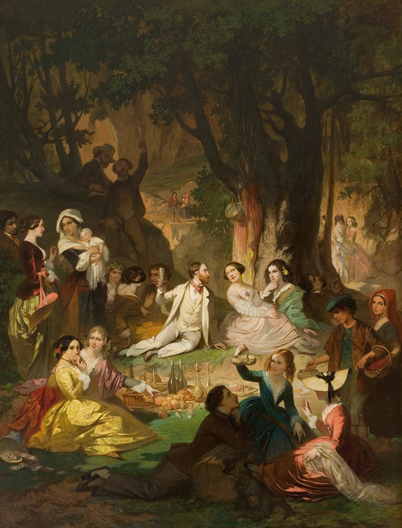 It’s unclear why Glaize selected a goûter champêtre or picnic for a portrait of his patron Alfred Bruyas. Perhaps Glaize meant to highlight Bruyas, dressed white, in a theatrical social setting as a man among many women. He spotlights his patron in the center,...
It’s unclear why Glaize selected a goûter champêtre or picnic for a portrait of his patron Alfred Bruyas. Perhaps Glaize meant to highlight Bruyas, dressed white, in a theatrical social setting as a man among many women. He spotlights his patron in the center,...
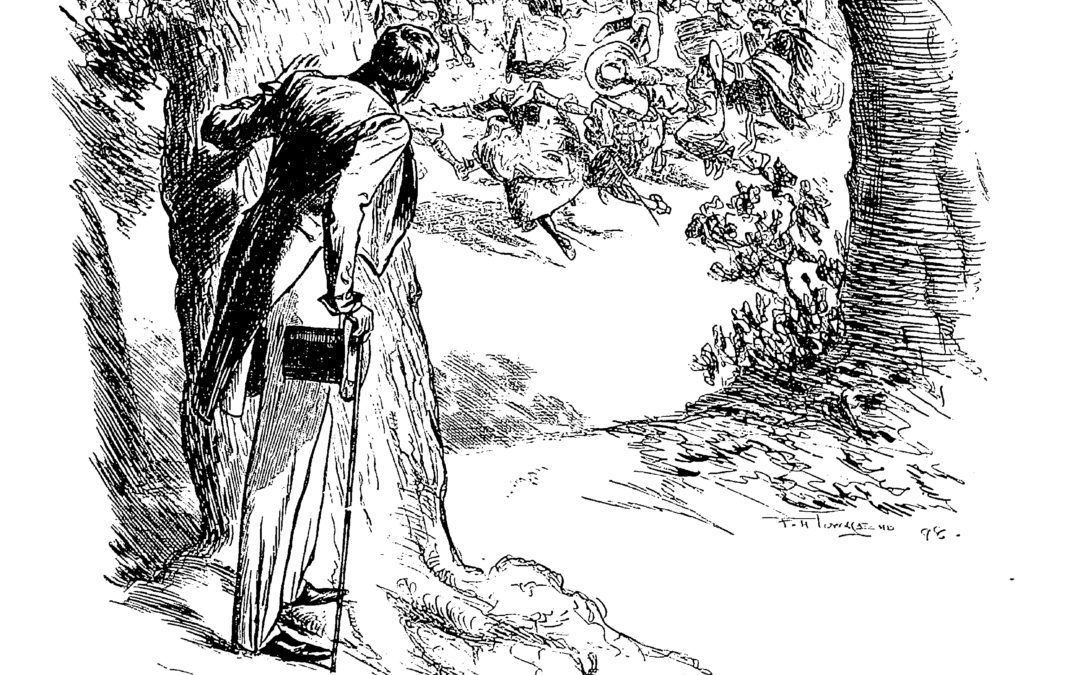 Hawthorne’s memories of Brook Farm were a childish and boisterous masquerade picnic party for a six-year-old boy. Hawthorne refused to participate and “lay under the trees and looked on.” A decade later, Hawthorne refashioned this party an unpleasant...
Hawthorne’s memories of Brook Farm were a childish and boisterous masquerade picnic party for a six-year-old boy. Hawthorne refused to participate and “lay under the trees and looked on.” A decade later, Hawthorne refashioned this party an unpleasant...
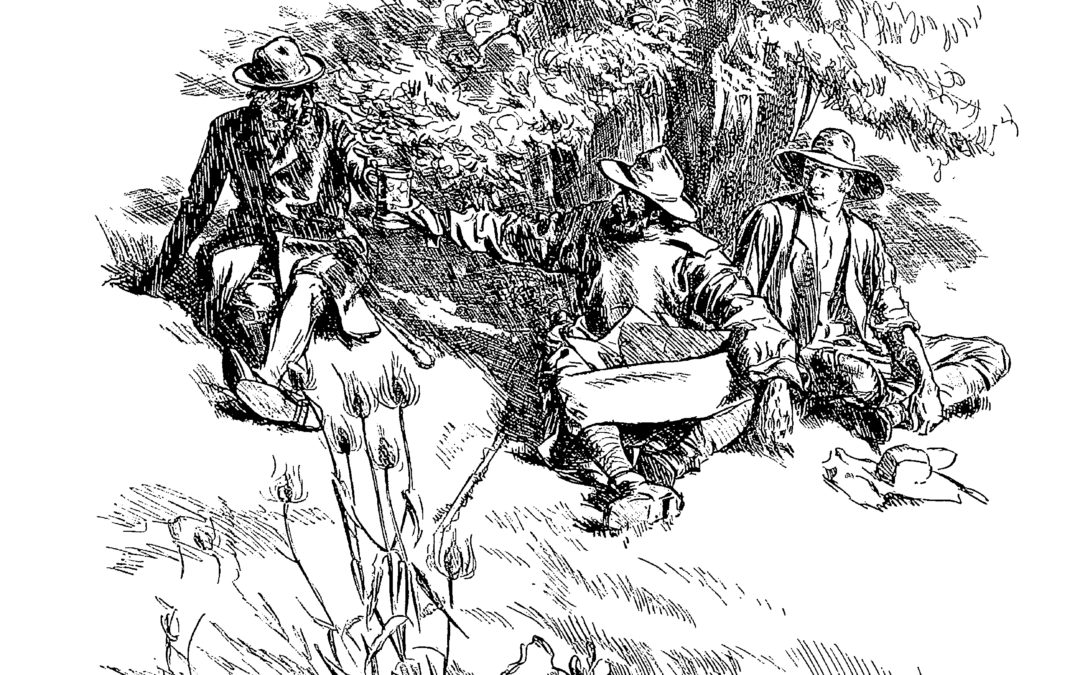 Hawthorne’s The Blithedale Romance is the story of Blithedale. On this communal farm, Mile Coverdale and Charles Hollingsworth vie for Priscilla’s affection, an ethereal waif as she seems to float rather than walk on the ground. One of Frederick...
Hawthorne’s The Blithedale Romance is the story of Blithedale. On this communal farm, Mile Coverdale and Charles Hollingsworth vie for Priscilla’s affection, an ethereal waif as she seems to float rather than walk on the ground. One of Frederick...











